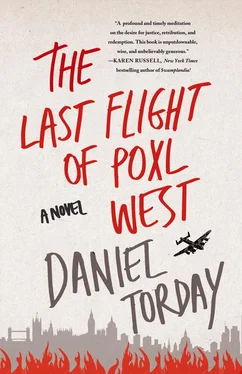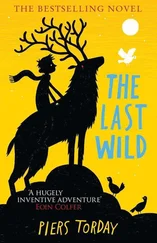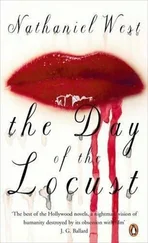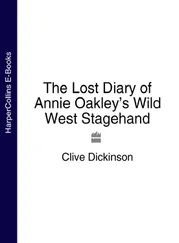Like every one of the things I’d lost in that period, I couldn’t have it back.
At times, always unexpected, the flames of the past will come and burn a hole in my day. I read a lot of poetry in my summers when I’ve got some free space in my head and I return to the poetry written during that time when I first met Françoise. I knew then that T. S. Eliot had been a fire watcher in one of those central London stations near where Clive Pillsbury and I worked as squaddies. Perhaps I saw him once. Perhaps I passed him on the street that night in December when I first met Glynnis Goldring. Perhaps I saw Françoise in those last months before she lost her sight, simply passing her on the street somewhere, seeking out fires and not seeing her because I wasn’t looking. Running around all of London in those last days before I decided to fly sorties to kill tens of thousands. Perhaps if I’d found her then, before her life settled in Richmond, I could have won her back, could have had her as my wife.
I came through those years of war wanting only one thing. But I understand now that it wasn’t Françoise. It was the Françoise I knew before I left her, before I’d made the worst decision I’d ever made in my life, one that I regret today more than anything I’ve ever done. The Françoise I’d met in Rotterdam before I left for London, as she was then. I could not return to Leitmeritz and take over Brüder Weisberg; I could not go back and choose to attempt to help my mother and father reconcile. I could not go back and sit out the bombing of Rotterdam by Françoise’s side, allowing her whatever she needed to be allowed. But I had found her, and now she was in fact William Rutherford’s wife and she was going to stay, bodily, William Rutherford’s wife.
3.
I have written a book through the scrim of memory, seeking a freedom that can be attained only through acknowledgment. I do not know if I’ve succeeded. But allow me to back up just once more and recount to you one last memory, to return to one moment before things were settled with Françoise, in want of liberation.
One Wednesday in 1947, in the winter months, during which British European Airways and the weather kept me from Françoise’s garden and before it was settled that she’d continue on in her life with William Rutherford, I arrived at 128 Park Sheen, only to find no answer at the door.
A week later I returned. Again I found the flat vacant. Mail lay piled at the door, letters Françoise couldn’t have read if she’d wanted to. I wondered if one even arrived from Heidi. But I would never know. I was alone for so much of those years after I left my home in Leitmeritz, but never in all that time was I as alone as I was during those weeks. They began to accrete: I’d lost forever the sedentary love of my parents. I was certain at that time I’d been all but disabused of the hope for romantic love.
Still I returned each week to Park Sheen with the hope Françoise might admit me again for tea. On the fifth Wednesday after Françoise had ceased to answer, I knocked, and she answered. She saw me in. She took me to her kitchen as if no time had passed. In the span of our relationship, I suppose it hadn’t.
She took out the teacups, lit the flame, cooled her palm in the sink, and served our tea. Sweat began to collect on my brow. I was about to say something when I looked at Françoise and recognized she was about to speak. This fact was signaled by a tightening around her eyes.
“My ophthalmologist is in Vienna,” she said. “I was being checked out. William set it up. He knows a man there. There’s scar tissue behind my left eye. My right eye is gone. Just glass. But the scar tissue behind the left must be cleared from time to time. While we were there we stayed to see Don Giovanni and to see a psychotherapist I’ve come to trust.
“Well, not see, after all. But.
“I had reason to talk with him this past month. There appeared to be some chance of restoring sight to my left eye. There was response from the optic nerve after the scar tissue was cleared this time.”
“You might have mentioned you’d be going,” I said.
I didn’t say it particularly kindly.
“I might have said a lot of things. I might have told you how confused I was in the days after you left Rotterdam, when Veerhaven was bombed to dust. When many died. When I was left alone to deal with it, wondering where on earth you’d gone. Do you know what it feels like to be abandoned again? I can no longer see, but I haven’t forgotten what color looks like. How often do I think of that afternoon when we biked to the tulips fields, when I told you of the American who bought me my mandolin, who left me without explanation. And then there I was, again, left alone. Without a word. Even after you knew it was my greatest fear to be abandoned. Some actions you can’t take back, Poxl. Most of them, in fact. Mostly we do things in our lives and they affect the people around us. You. What you did. To me. You ask for forgiveness? You offer apology? As if that could undo what’s been done.
“Greta and I were lucky to live. You weren’t there. It was only through William’s generosity that I was able to come to London. One man, one person who finally did what he said he would do. There was always a promise of a different life. Only William took action. Was it what I most wanted? Was this the version of my life I’d have chosen? I’d even fallen in love, really in love, with a Jewish boy from Czechoslovakia at one point, but he flew from me without a word. After the bombing that spring, I would have done anything to leave. Do you know what it is to wait out nights in a basement, waiting to be burned as if you were in a kiln? There’s nothing I wouldn’t have done to get away. Nothing.
“William had a flat in Knightsbridge. We made it all the way through the heaviest nights of the Blitz without being hit. I was finally away from Rotterdam. I was finally safe. We were lucky. Neighbors were left homeless. Plenty of scares. Our town house remained intact. Months passed. Soon they were no longer scares even — there was no more real fear. We let ourselves believe it. What we can let ourselves believe if only we want to believe it badly enough. The rumbling of buildings being hit, the hiss of incendiaries, those became the natural sounds of life.
“One night in February we were to go into London to see some friends. William hired a car to pick us up. At the last minute he decided he would shower. Would I mind looking after the car? I said I wouldn’t.
“Now, you might wonder — didn’t I know better than to stand by a window? My life had grown so circumscribed. Sometimes I allowed myself indiscretions. I didn’t even want to acknowledge the war was going on outside. For just one evening I would stay in our flat without the blackout curtains pulled, the lights out in the room but the curtain open that I might look on the park across from our building, which reminded me so of those parks I’d loved in Delfshaven. A late-night walk in that park, even, if William was at hospital.
“That night, I allowed myself to stand by a window without the blackout curtain drawn.
“The first thing I thought was that the wall had somehow fallen and hit me in the face. A rush like a conch shell up to each ear. My eyes were closed. I couldn’t press my face off the wall. Then I realized it wasn’t a wall; it was the floor. I couldn’t get up. I could hear William calling me. All I could think was to henpeck at him for his tardiness, to say, ‘Finish your damn shower; the cab’s coming.’ Even when I came around in hospital the following morning, even when my body knew I wouldn’t be able to see any longer, in my mind I felt anger at William, wishing he’d finish that bloody shower.”
She made a little sound, not a sigh really, but a kind of harrumph I’d not ever heard her make before. Then she stopped. She fingered her teacup, and it appeared she wouldn’t say anything further.
Читать дальше












